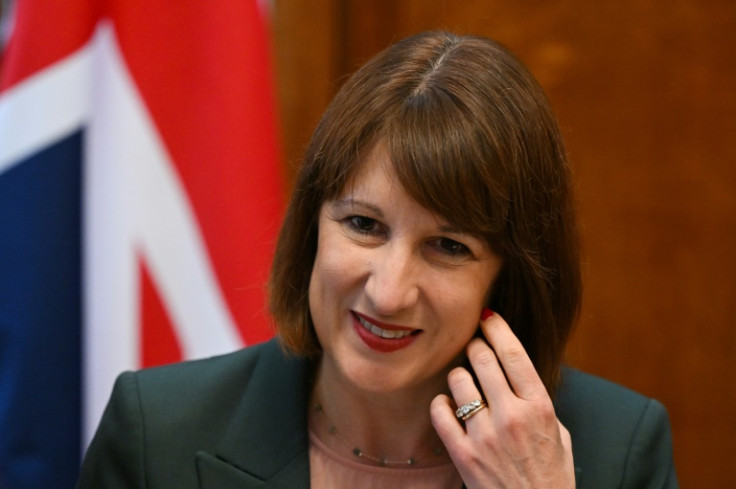Finance Minister To Reveal Fiscal Audit Of 'Broke' Britain

Finance minister Rachel Reeves will on Monday claim Britain is "broke and broken" when she reveals the findings of an assessment into the country's public finances ahead of a forthcoming budget.
Reeves, appointed to the role following the center-left Labour party's landslide election victory on July 4, will tell MPs the previous Conservative government "overspent this year's budgets by billions of pounds".
She will say this occurred through "a series of unfunded promises" and that the Tories then "covered up the true state of the public finances," according to the finance ministry.
It added Reeves, the first female chancellor of the exchequer, will vow to "restore economic stability" and "fix the foundations of our economy" in the afternoon statement to the House of Commons, expected after 3:30pm (1430 GMT).
Her plan will include government departments delivering "savings this financial year".
Reeves's first steps will also include commissioning an independent forecast by the national fiscal watchdog, the Office for Budget Responsibility, and confirming the dates for the next budget and spending review later this year.
She is set to commit the government to one major fiscal event per year, ending so-called surprise budgets which the ministry said have "caused uncertainty for both the markets and family finances".
Meanwhile a new Office of Value for Money will be established to curb wasteful government spending and provide further scrutiny, "so that value for money governs every decision government makes," the ministry said.
"Across the public sector, the new government's assessment has shown that Britain is broke and broken," Prime Minister Keir Starmer's Downing Street office said in a weekend statement previewing Reeves's speech.
The Conservatives have refuted Labour's claims, alleging the new government is using the fiscal assessment to lay the ground for tax hikes.
The audit is widely seen as preceding infrastructure spending cuts and potential rises to some taxes -- although Labour vowed during the election campaign that it would not raise the main rates levied on workers.
The Sunday Times and other media have reported that Reeves's team has identified an additional public finances black hole of around GBP20 billion ($26 billion).
As a result, she plans to delay or scrap a number of unfunded rail and road projects, according to the reports.
The UK deficit -- the difference between what the government receives in tax and what it spends -- stood at around GBP120 billion in the 12 months to the end of March, the country's last fiscal year.
Labour has vowed to improve the performance of public services, notably the National Health Service and schools, which will require heavy spending, according to economists.
The party, which has spent the past 14 years in opposition, has pledged to boost public sector funding primarily through ramped up economic growth -- vowing to achieve the highest annual increases to GDP in the G7.
Reeves has already unveiled plans for the mass building of homes in a bid to help drive that growth, alongside reform of the country's antiquated planning system, renewed focus on the green energy transition and other measures.
Labour has ruled out immediate rises to income, worker insurance and corporation taxes. But changes to levies on capital gains and inheritance appear possible to fill holes in the public finances.
© Copyright AFP 2025. All rights reserved.





















